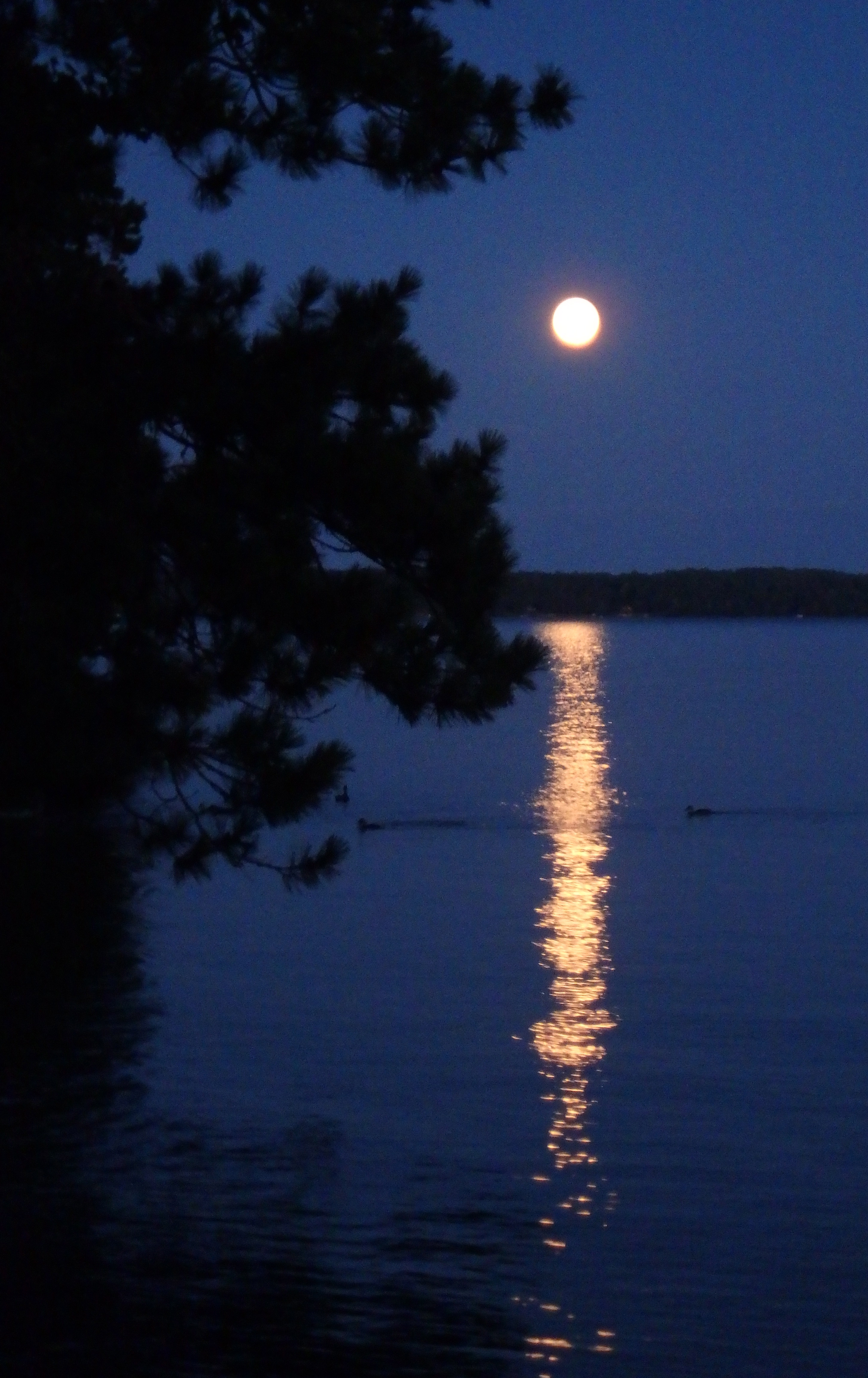JULY 21, 2019 – Lately I’ve suffered a bad bout of my own myopia. Sure, occasionally I read the “news,” or rather, I check the “media,” to see what’s happening beyond my immediate horizon. But beyond my little world, my limited observations, my narrow frame of reference, I know barely a smattering of details about only a handful of matters going on around the globe. In this regard I know that I’m hardly alone. It’s why on a clear, summer night I’ll walk out on our dock and behold the heavens above the lake.
In these parts, away from city lights, the stage is set for the stars to shine and dance the night away. Once I’m comfortably seated and my eyes have adjusted to the darkness, I can watch the solo acts—Mars, Venus, Saturn, Jupiter, or the occasional satellite crossing the sky or a meteor burning its way onto the atmospheric stage. Or I can enjoy the constellations, just as people have for millennia, connecting me with the ancients in some sort of way. Of course, I can’t avoid The Big Show—the Milky Way—arching across the entire nighttime stage, like a giant slide on which to place my dreams.
But because of its proximity to earth, the moon is what dominates the sky—and our imaginations.
So it did on that night 50 years ago, when our world watched live video of Neil Armstrong and Buzz Aldrin stepping onto the surface of the moon. Today, one wonders what’s more remarkable—that humans landed and walked on the moon (and returned!) or that they did so all of a half a century ago.
At the time I was not quite 15. Our family didn’t own a TV so Dad rented one at the local hardware store. He set it up in the den, and my parents, my sisters, and I crowded around the screen to watch the greatest adventure of human history. I remember going outside at some point with one of my sisters and gazing up at the moon and experiencing the thought that at that very moment, two human beings were standing up there looking back at us!
That evening each of us earthlings joined the rest of humanity in those moments of unity amidst such division in the world and within the country. No such moments had ever before occurred, and no such experience has bound us since. In that enterprise, we traded our individual and collective myopia for men on the moon. We looked up, not down. We experienced ourselves at our best.
How amidst our divisions today can we again lose our myopia, however briefly? Around what mission can we rally, our imaginations soaring beyond our horizons? In what enterprise can we again know of what extraordinary accomplishments we are capable?
Who, I wonder, by Inauguration Day, 2021 will dare us with, “First, I believe that this nation should commit itself to achieving the goal, before this decade is out, of [BIG MISSION]”?
© 2019 Eric Nilsson
